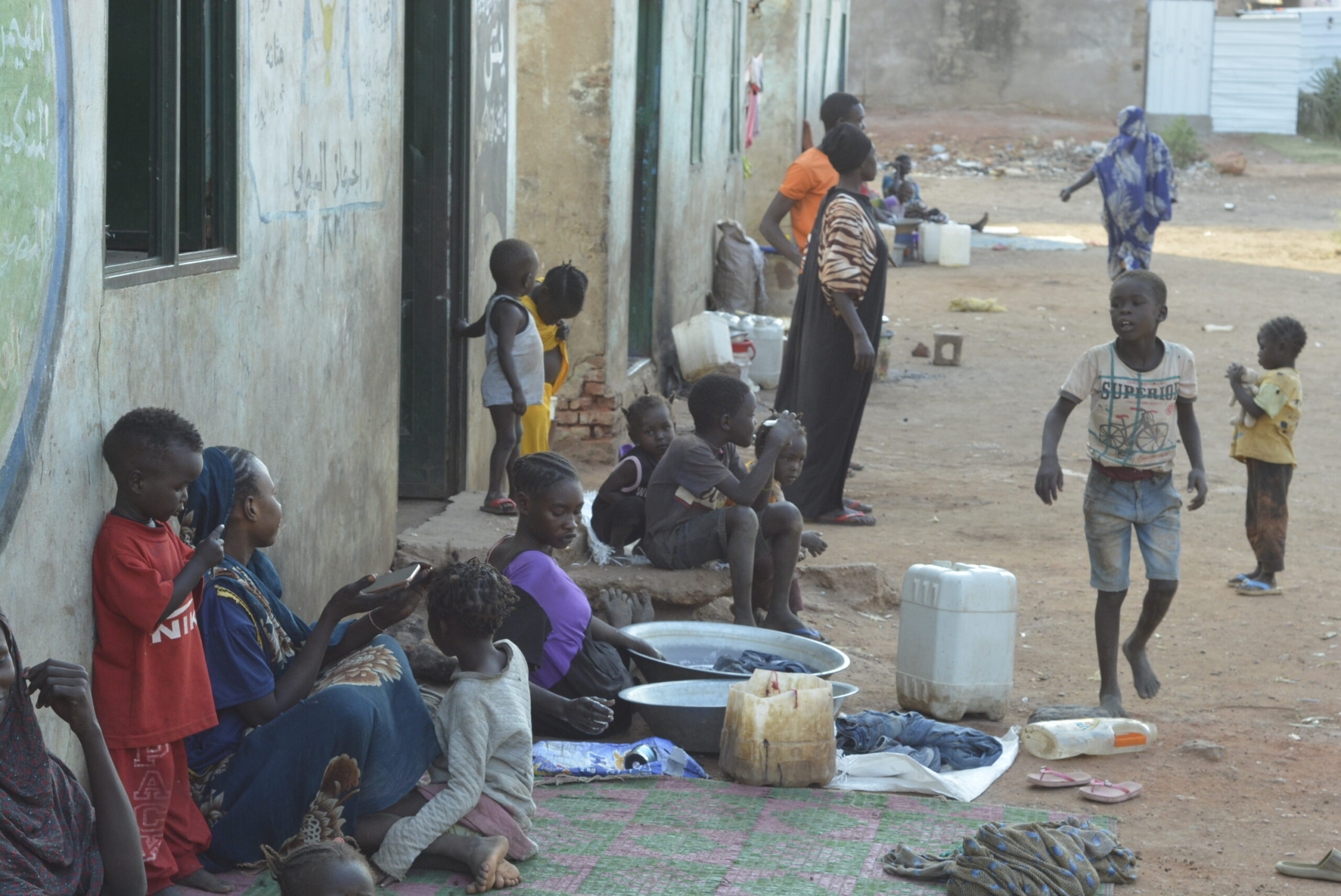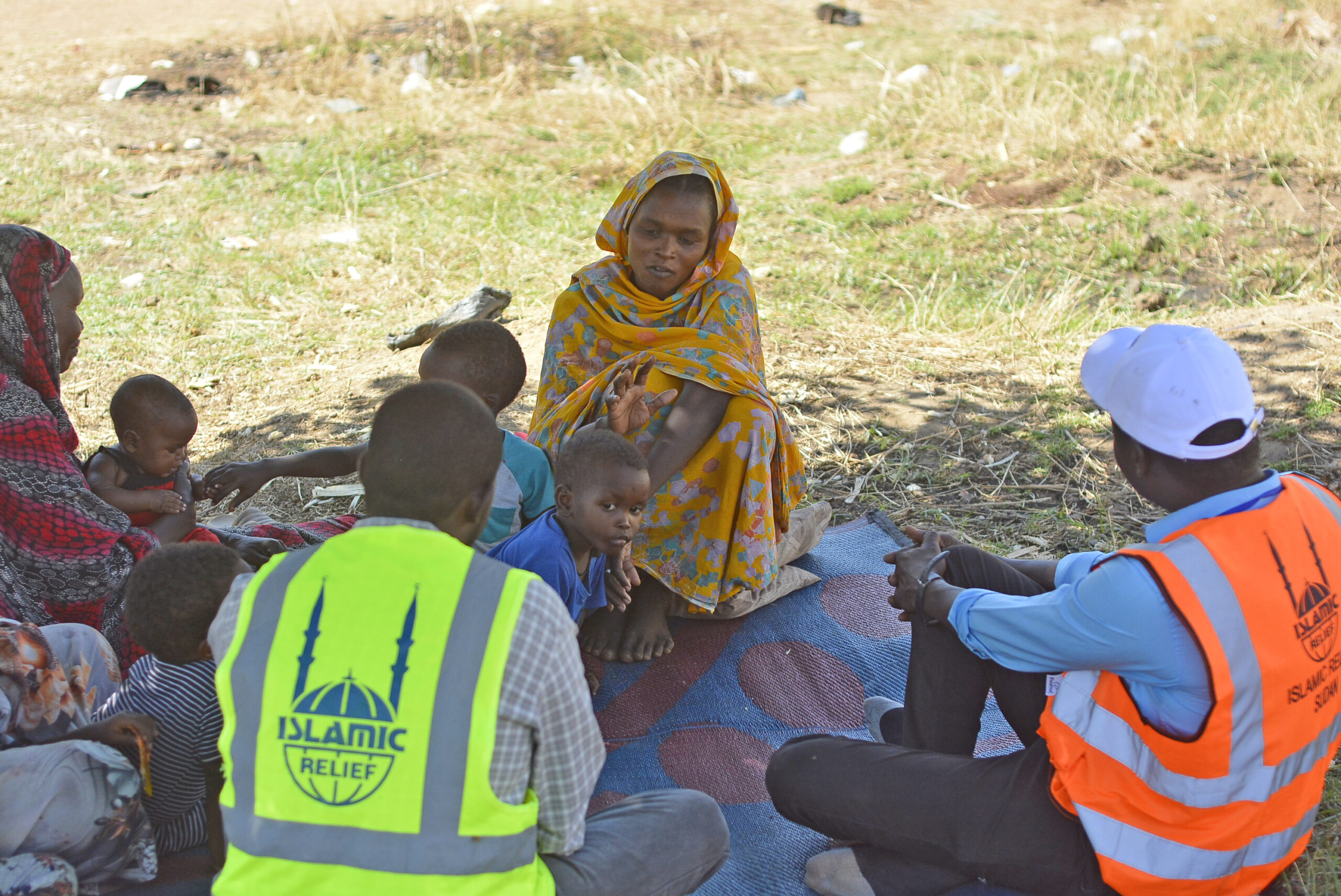More than 7.4 million people have been forcibly displaced since violence erupted in Sudan in April. As fighting continues to spread across the country, the humanitarian crisis is deepening.
In the past few weeks alone, more than 600,000 people have been displaced by violence in the city of Wad Madani and parts of Al Jazirah state in central Sudan. For many of these people, it’s their second time seeking safety, after first fleeing to escape fighting in Khartoum.
More than 1 million people have left the country, seeking refuge in neighbouring Chad, Egypt and South Sudan.
Islamic Relief aid workers say that many people displaced by the most recent fighting in central Sudan have walked for days without any food or water as they search for safety, often sleeping out in the open by the roadside or under trees.
Elsadig Elnour, Islamic Relief’s Country Director in Sudan, is concerned about how deep the humanitarian crisis in Sudan will get:
“If the war continues like this, I fear that the whole country will collapse. The needs of the people are huge and growing by the day, and there are desperate families wandering along the roads with nowhere safe to go.”
“Wad Madani had become like a second capital as people fled there from Khartoum after it was engulfed by conflict. Now it’s like a ghost town. We are extremely worried that hunger will rise if farmers in the country’s main breadbasket region can’t plant again because of the violence and displacement. We urgently need a ceasefire and peace.”

A deepening crisis
Towns in eastern Sudan including Gedaref, Port Sudan and Sennar are becoming severely overcrowded as their population continues to grow.
In the city of Port Sudan, new arrivals are struggling to find places to stay as rents have skyrocketed amid rapidly rising demand.
The overcrowding and poor sanitary conditions have led to outbreaks of diseases such as cholera and malaria. Port Sudan in particular is lacking adequate sanitation.
As overcrowding increases the food situation continues to worsen. In parts of Al Jazirah state food has tripled in price and there are growing concerns that farmers will now miss the winter harvesting season from December until the end of February due to displacement and damage to crops, further reducing supplies of wheat, vegetables and other foods in the coming months.
The impact of the conflict on the health sector is significant. Health facilities lack medicines and supplies and are experiencing a severe shortage of staff – more than 70% of healthcare facilities in Sudan have shut down since the fighting began.

A lifeline
Islamic Relief has suspended its operations in Al Jazirah state but continues to support those affected by the conflict in parts of Darfur, North and South Kordofan, Gedaref, Sennar and Blue Nile state.
Islamic Relief has so far provided aid to more than 550,000 people since the crisis began in April, and we will continue to distribute food and cash to the thousands of people displaced from Wad Madani.
As we continue to provide life-saving aid to the people of Sudan, your generous donations can make a huge difference. Donate to our Sudan Emergency Appeal now.










